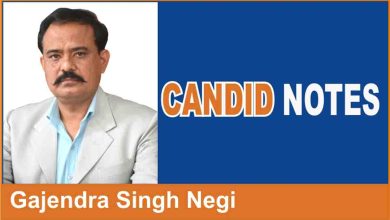Fractured mandate

Every four years, the world looks at the US and wonders why its Presidential election system is so convoluted
At the time of writing, the United States still did not know who would be its President starting January. On American news channels, there was an amazing granularity of data but the anchors and analysts predicted recounts and major legal challenges remain. Like India, most other major democratic nations are wondering why the election to determine the leader of the world’s largest economy and military is so confusing. Part of the reason is a 19th century system devised to protect the rights of the States in the US, the so-called “Electoral College”, so as to prevent the highly populous metropolitan States from dominating the less populated States in the middle of the country. This is why several times since the 2000 election, which pitted Al Gore versus George W Bush, the winner of the popular vote, often by a massive margin, lost the election. Think of the American system as a “first past the post” system, but a very confusing one with each State given a certain number of electors. The winner of the popular mandate in the concerned State, even by a single vote, takes the entire boatload of electoral votes. To transpose that system here, in the 2019 Lok Sabha election, one of the most highly contested States was West Bengal, and while the BJP did well there, the Trinamool Congress got more votes by a narrow margin of three per cent and by American electoral logic would have received all the 42 seats from that State instead of the 22-18 split that happened. That does not make sense. A completely proportional allocation of votes, maybe rewarding the State’s winner by giving him/her extra votes, might make more sense and also allow more equality to the vote. Currently, the States of California, New York and Texas, the three most populous States in the Union, are not even in play and almost beholden to one party. In many other nations, such a proportional system will lead to decades of unstable coalitions, but the fiercely protected political duopoly in the US might even allow this to make sense. However, highly fractured as it is, with extremists from both sides controlling the overall political discourse, the US, much like India to an extent, finds itself a divided nation where voters have piled themselves into silos, refusing to even hear sane voices from the other side. The death of centrism is an issue that is befalling almost every democracy across the world.
With States such as Pennsylvania, in whose largest city Philadelphia the “Declaration of Independence” of the US was drafted, saying that they might take up to 10 days to count the votes, and that State becoming as vital as Florida was in 2000, it might be sometime before the final tally and winner is known. Another wrinkle is that mail ballots can come in several days after Election Day and still be counted, as long as they are postmarked by then. Democrats have argued that the flood of absentee ballots and slow mail delivery in some areas make such a precaution necessary. For example, mail-in ballots from Nevada voters are not due until November 10 if postmarked by Election Day and in North Carolina till November 12. But with both candidates making public stands, Donald Trump promising to fight this out legally, it might be a long time before any result is known and that could make the fractures inside the US a lot, lot worse. Meanwhile, Biden’s campaign manager has legal teams standing by if Trump follows through with his threat of challenging the vote counts. His statement about wanting the Supreme Court to play a proactive role in case of a disputed election and the hurried confirmation of Justice Amy Coney Barrett to the top court days before Election Day paint a picture of desperation. However, never in the history of the US has a President refused to concede the election. But again, this is Trump. For now, both Trump and Biden have their eyes set on the three northern industrial States, also known as the swing States — Wisconsin, Michigan and Pennsylvania, which could very well determine who wins. And in the end, even if Trump wins, his brazen call to halt counting from the podium of the White House on the supposition that his margins are way too wide for anybody to catch up with, is unprecedented. For it not only desecrates the institution of democracy and disenfranchises voters, it also sets a precedent for other authoritarian world leaders to follow. Simply because it was done by the US President. Every vote counts and numbers have to matter over the war of perception and manipulation.
Thursday, 05 November 2020 | Pioneer





